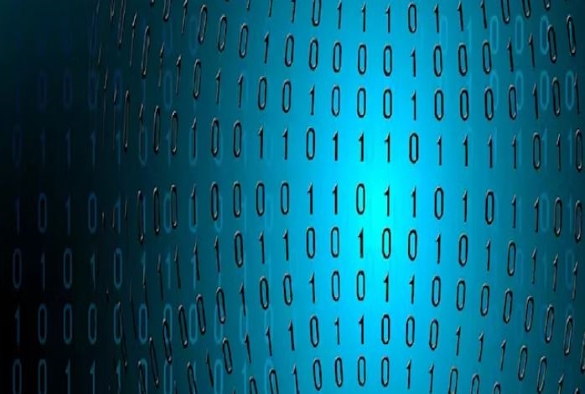Barkla Lecture 2022/23 with guest speaker Ignacio Cirac

Update: unfortunately, the annual Barkla Lecture has been postponed due to planned national strikes by the University and College Union.
We will announce a new date as soon as we can, once the industrial dispute has been resolved.
The Department of Mathematical Sciences at the University of Liverpool is delighted to welcome renowned theoretical physicist, Professor Ignacio Cirac, to deliver the annual Distinguished Barkla Lecture in Theoretical Physics 2022/23. The lecture will be aimed at a general audience – undergraduate students, postgraduate students, staff, and alumni are all warmly invited to attend. It will be preceded by tea and coffee in the foyer, and followed by wine and nibbles.
Tickets are free and can be obtained on Eventbrite.
Professor Cirac's talk is entitled: "Quantum computing and simulation with errors"
Quantum computers promise to solve problems that the most advanced supercomputers will never be able to tackle. They range from simple mathematical operations to the simulation of quantum materials or chemical compounds. Spectacular advances in recent years have led to the first prototypes of quantum computers, which can already perform some calculations much more efficiently than any classical device. However, they have imperfections and are not easy to scale up. Still, there is much hope that these prototypes will already be useful in some applications; that is, with them one could gain a (quantum) advantage over existing supercomputers. In this talk I will discuss some of these problems and, in particular, about the quantum simulation of materials and other physical systems even in the presence of noise. In addition, I will discuss some obstacles in obtaining quantum advantage for other cases, such as optimization problems, due to the propagation of errors.
Location: Chadwick Building, Rotblat Lecture Theatre
| Time | |
|---|---|
| 16:00 - 16:30 | Coffee |
| 16:30 - 17:30 | Barkla Lecture |
| 17:30 – 18:30 | Reception with wine and nibbles |
About the Speaker:
Professor Juan Ignacio Cirac is a pioneer in the field of quantum computation and its application in the field of information. With his colleague Peter Zoller, he made the first proposals to build quantum computers, quantum simulators, and quantum repeaters using atoms, ions, photons and other physical systems. He has also introduced basic concepts and techniques in quantum information theory and, in particular, in entanglement theory. With Frank Verstraete and other collaborators, he introduced the tensor networks states called PEPS, developed their theory, and related the entanglement of a many-body quantum system with the possibility of describing it efficiently.
Professor Cirac’s work has obtained many prestigious awards, including the Felix Kuschenitz Prize of the Austrian Academy of Sciences, the Quantum Electronics from the European Science Foundation, the Prince of Asturias Prize for Scientific and Technical Research, the National "Blas Cabrera" Prize for Physical, Material and Earth Sciences, the Frontiers of Knowledge and Culture Award for basic science given by the BBVA Foundation, the Franklin Medal, the Niels Bohr Medal, the Wolf Foundation Prize in Physics, the Hamburger prize for Theoretical Physics, the Max Planck Medal of the DPG and, more recently, the John Bell Medal of the University of Toronto and the Quantum Computing Prize of the Micius Foundation in China. He holds honorary degrees from the universities of Castilla-La Mancha, Politécnica de Barcelona, Zaragoza, Valencia, Politécnica de Valencia, Europea de Madrid, and Buenos Aires. He is a member of the German (Leopoldina), the Bavarian, and the Spanish Academy of Sciences, and corresponding member of the Austrian, Zaragoza, and Barcelona Academies, as well as fellow of the American Physical Society.
Born in Manresa, Spain, Professor Cirac graduated in Theoretical Physics from the Complutense University, Madrid in 1988, and gained his PhD in 1991. After positions a University of Castilla-La Mancha and University of Innsbruck, with long visits to University of Colorado and Harvard University, he became a member of the Max Planck Society and was appointed director at the Max Planck Institute of Quantum Optics (Garching, Germany) in 2001. In 2002 he also became Honorary Professor at the Technical University of Munich, and since 2019 he is co-director of the Munich Center for Quantum Science and Technology.
About the Distinguished Barkla Lecture:
The annual Barkla Lecture is held in honour of Professor Charles Glover Barkla, University of Liverpool Alumnus, awarded the Nobel Prize in Physics 1917 “for his discovery of the characteristic Röntgen radiation of the elements”.
The annual Barkla Lecture is an opportunity to hear from renowned theoretical physicists, many Nobel laureates themselves, about their ground-breaking work across different areas of theoretical physics. The lectures are aimed at a general audience, with the hope that anyone can follow them and be inspired by their research and personal achievements.